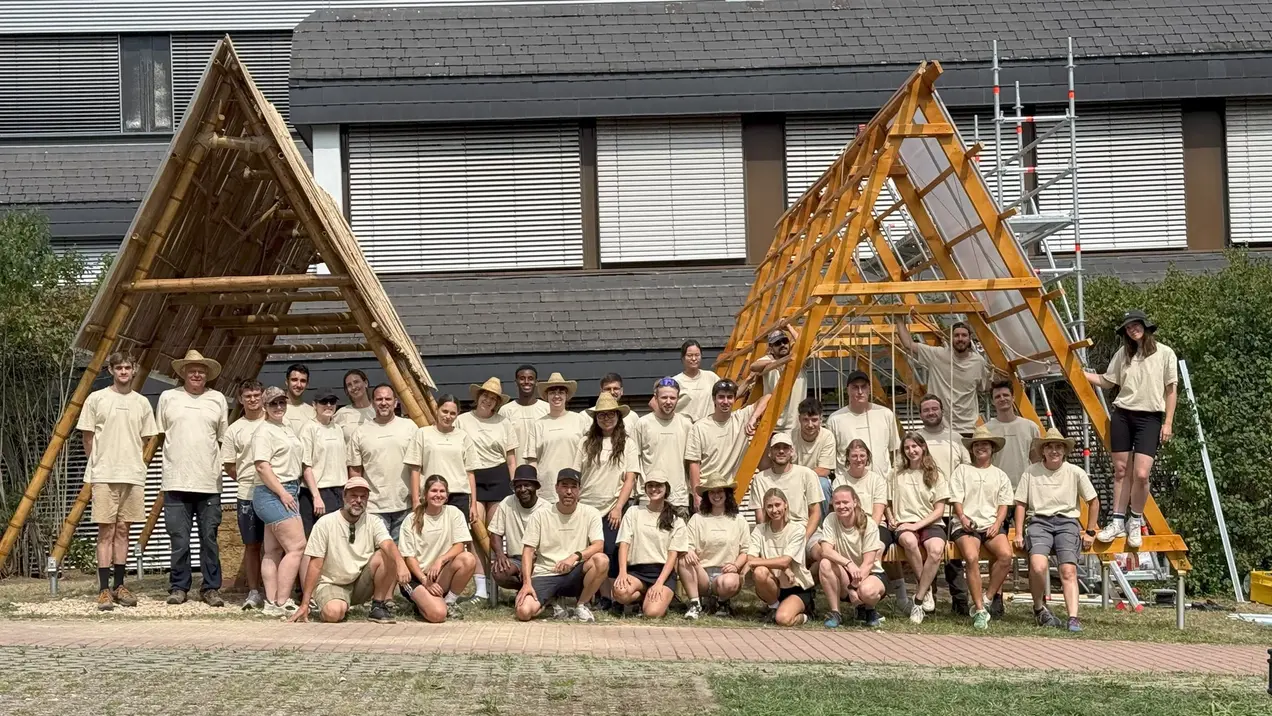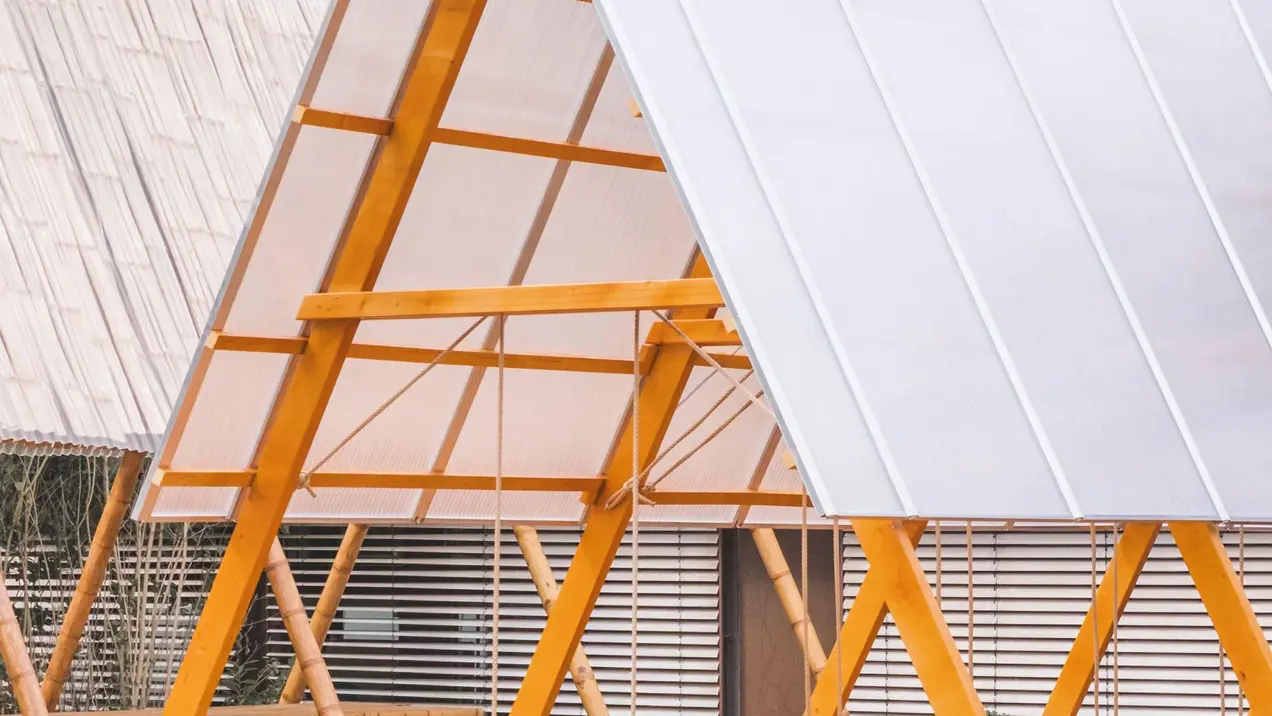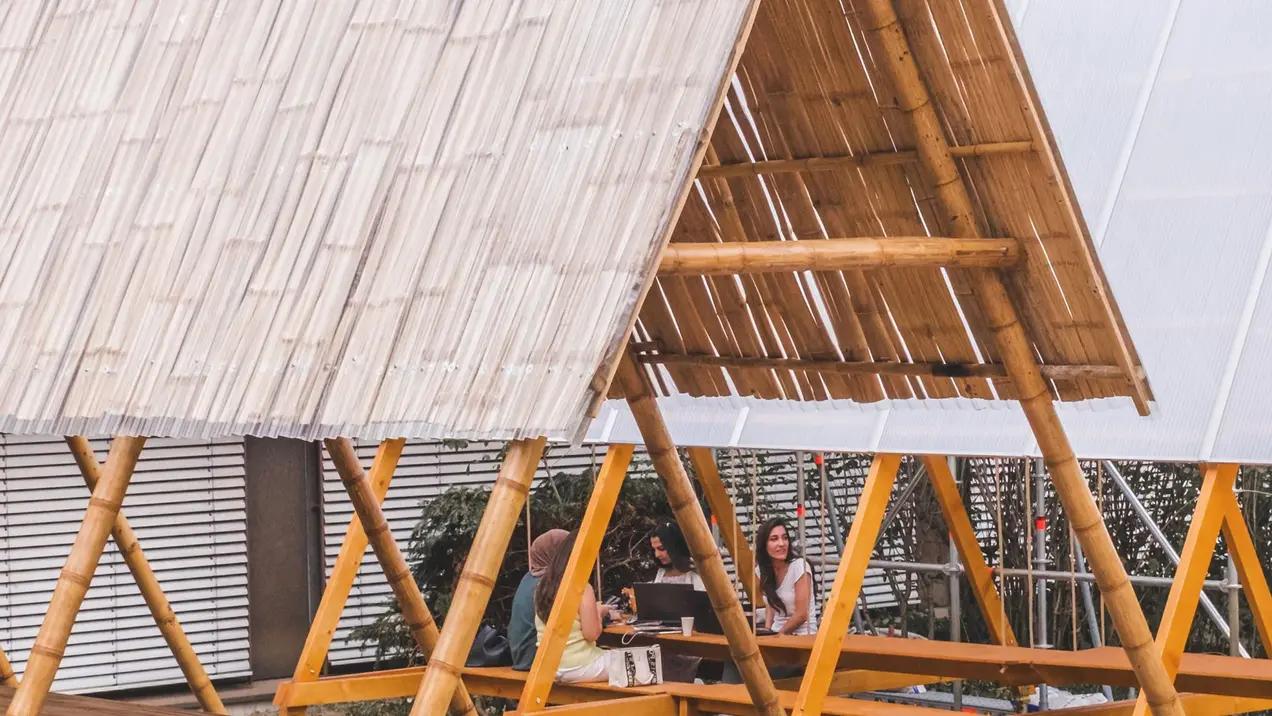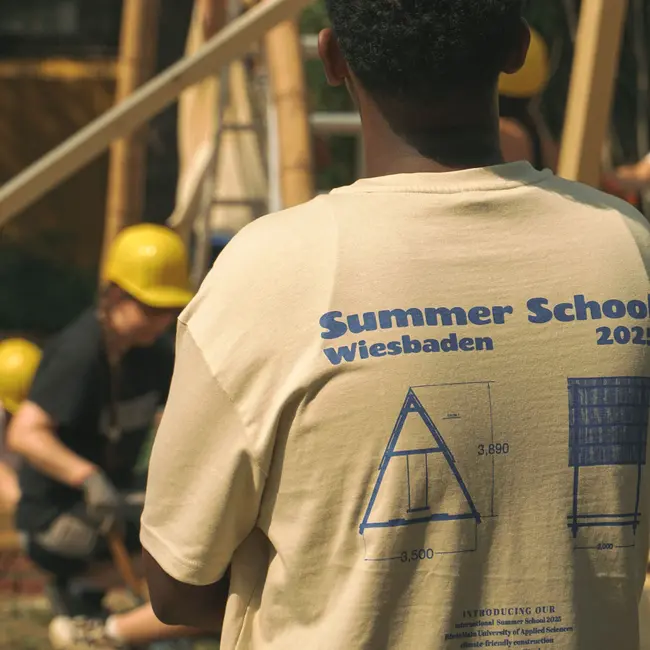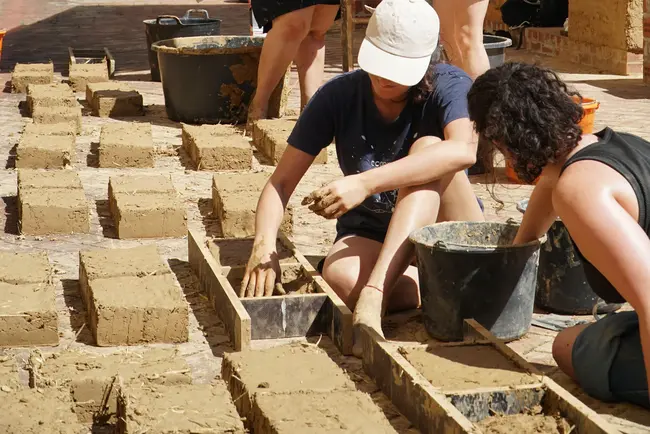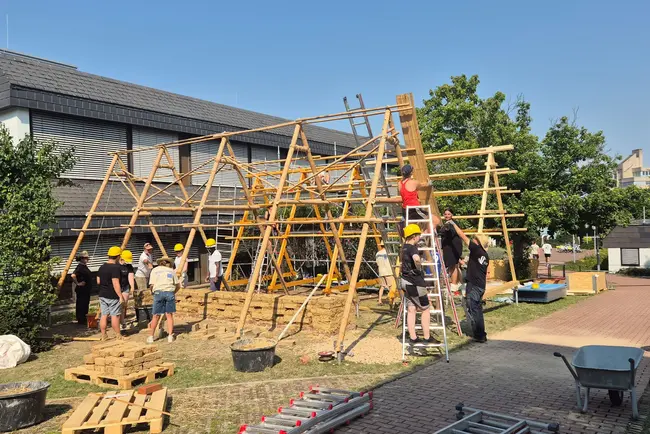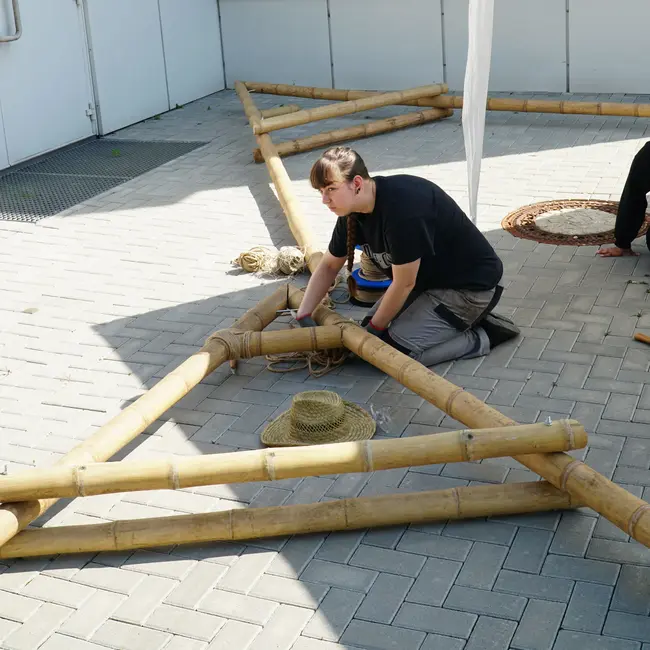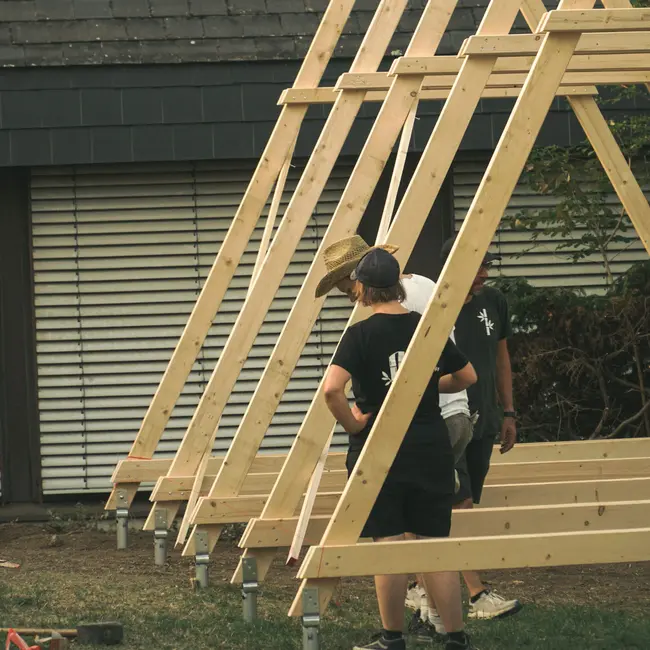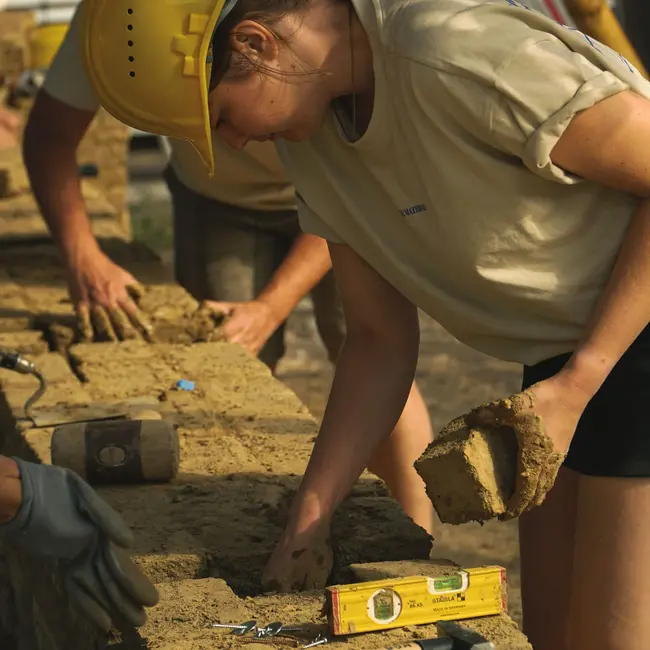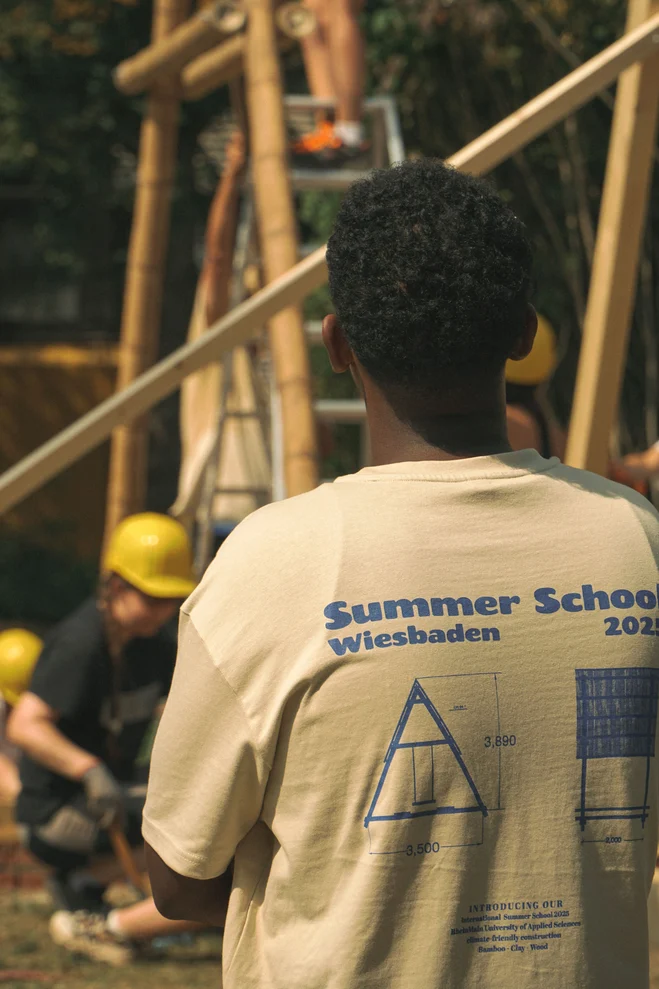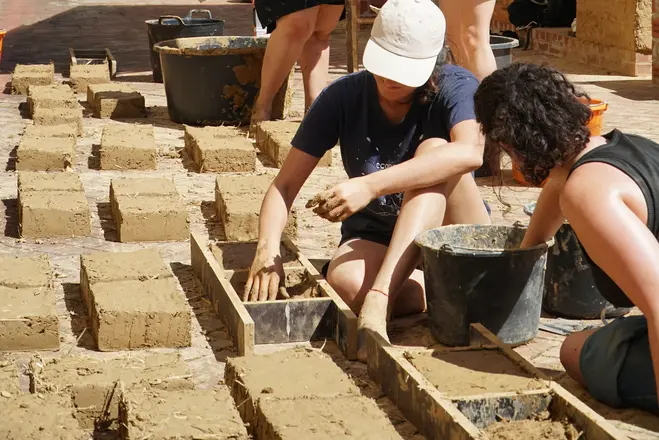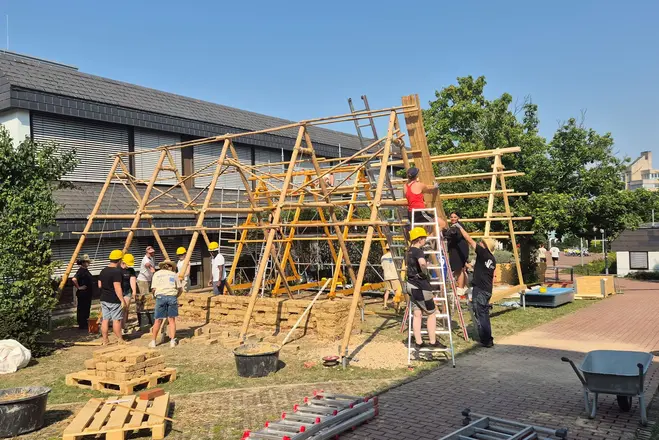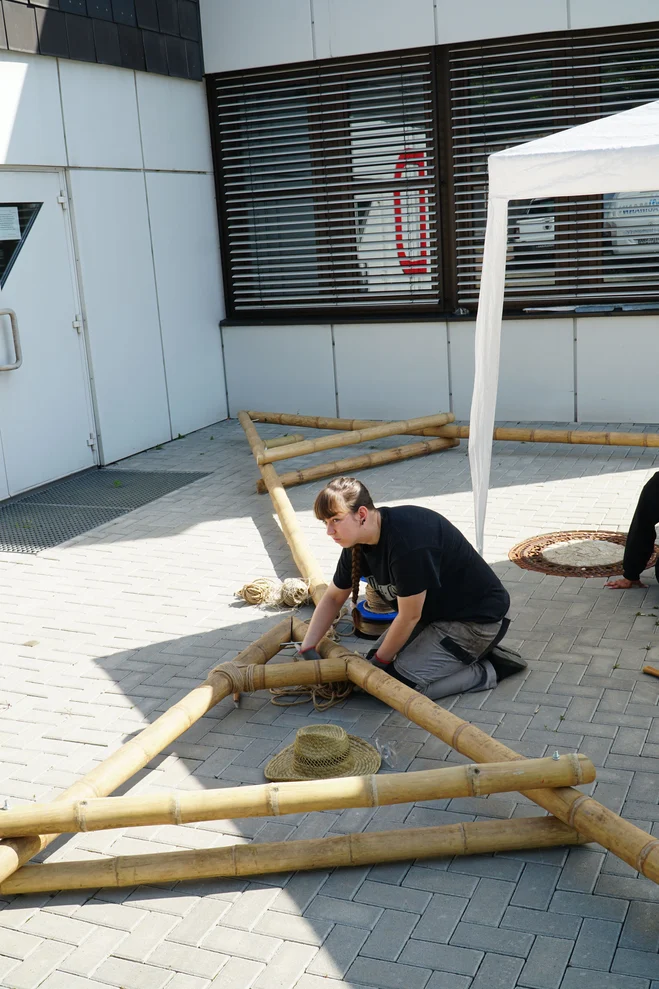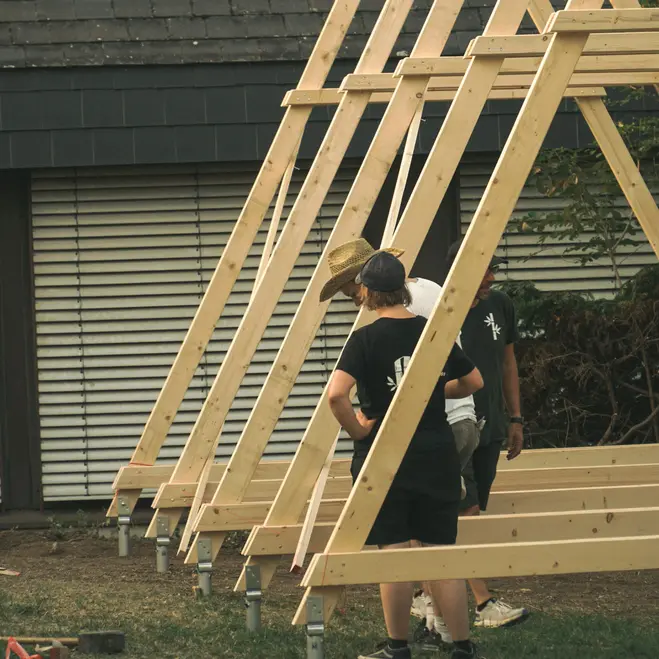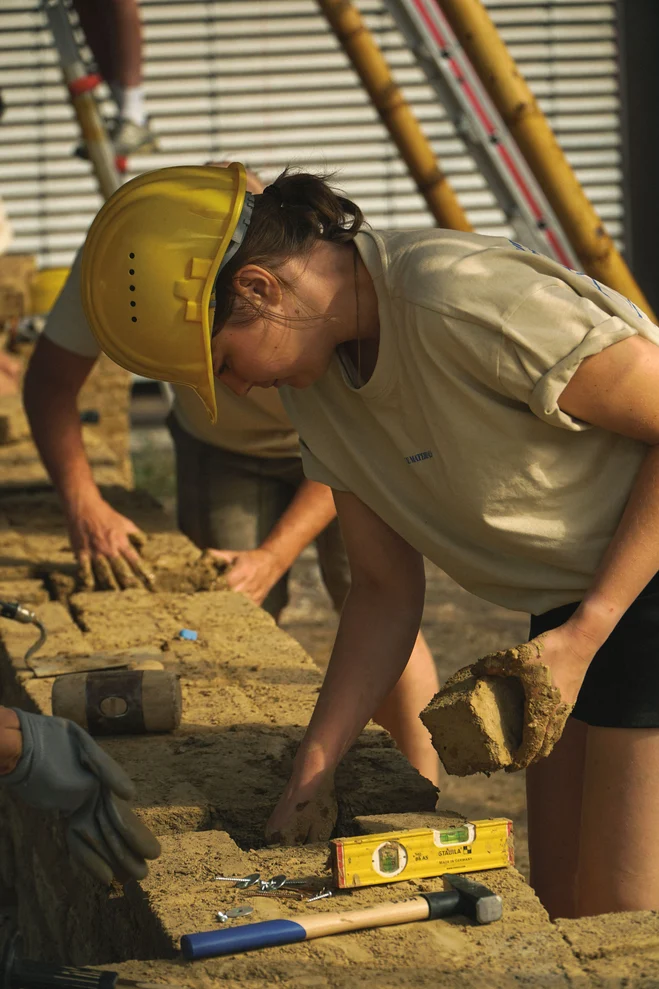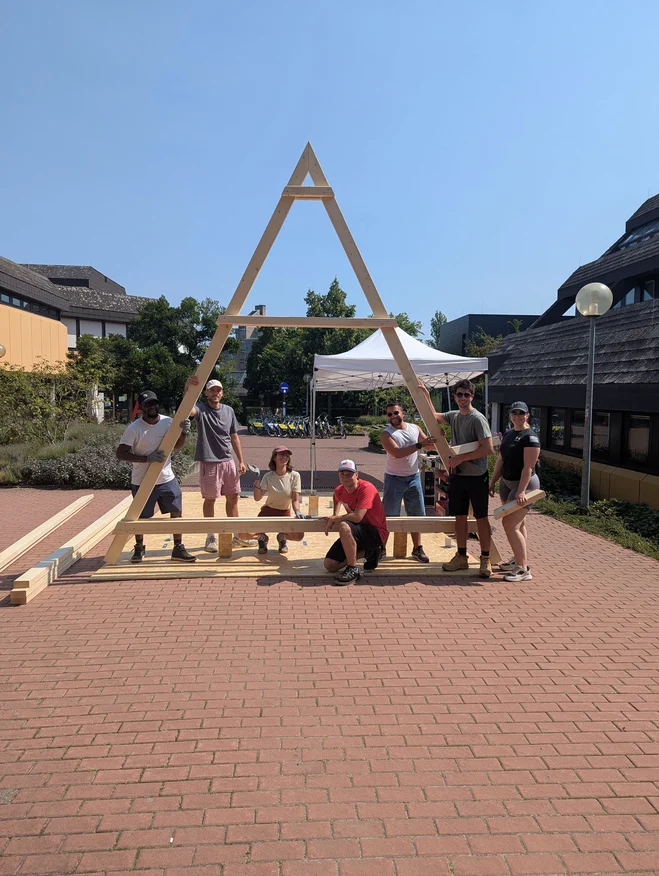30 students, 9 nations, 13 universities and one common goal: making sustainable construction tangible. Under the motto "Renewable Materials", the Summer School of the HSRM Competence Center for Renewable Building Materials took place for the fourth time this summer at Hochschule RheinMain - open to international participants for the second time.
An outdoor seminar room for the HSRM
The cooperation project between the Faculties of Architecture and Civil Engineering and Social Sciences and the university's TeachingLearningCenter is part of the "Outdoor Seminar Space" sustainability project for climate-resilient outdoor spaces at HSRM. Initiated by the Faculty of Applied Social Sciences, it provides new impetus for sustainable teaching and learning spaces on the Kurt-Schumacher-Ring Campus.
Over a period of six days, 30 committed students - 16 from Hochschule RheinMain and 14 from international partner universities - worked together on innovative projects relating to the sustainable use of renewable raw materials in construction. The participants came from various subject areas such as Landscape Architecture, Sustainable Design, Building Management, Sustainable Leadership, Architecture Urbanism and Climate Action and many more.
International, interdisciplinary and practical
The interdisciplinary team was made up of students from a total of 13 universities from 9 different countries - impressive proof of the growing international interest in sustainable Architecture and building practice.
The renewed participation of students from our long-standing partner universities - the Polytechnic University of Madrid and the Vienna University of Technology - was particularly pleasing.
Practical project: Two pavilions as new outdoor teaching and learning spaces
The seminar was led by Prof. Sascha Luippold and his team from the "Climate Friendly Construction" seminar series. The goal was to create two functional outdoor teaching and learning spaces on campus in just one week - with a strong focus on renewable, climate-friendly materials.
Workshops, teamwork and a summery atmosphere
In practice-oriented workshops, the participants learned how to use various sustainable building materials, tools and construction methods. The seminar included practical work with a variety of renewable materials such as wood, straw, clay and bamboo. Despite summer temperatures of up to 35 degrees, the groups were highly motivated and often worked late into the evening. Small ice cream breaks, a relaxed atmosphere and the common goal contributed to a special sense of community.
It was impressive how committed and motivated the students were to work on the project. In a short space of time, a group of students from very different backgrounds became a real team.
Nikolai Ochs, lecturer at the HSRM
Supporting program: culture, exchange and inspiration
The Summer School also offered a varied program away from the construction site: a joint pizza dinner, a city tour and a visit to the wine festival gave participants the opportunity to get to know each other and the city of Wiesbaden.
A special highlight was the lecture evening on Thursday entitled "Material. People. Living - New Perspectives in Architecture". After an introduction by Prof. Dipl. Arch. ETH Sascha Luippold, Dipl.-Ing. Jan Glasmeier reported on his clay projects in Southeast Asia. Marvin Martin then presented his earth building projects in West Africa - particularly impressive was the "0 KM House", in which all the building materials came from a radius of less than one kilometer. This was followed by Dipl. Arch. Luis Da Gama followed with exciting insights into his bamboo projects in Portugal. Andrés Bäppler concluded with a presentation on sustainable urban development in Colombia, in which he presented specific projects that already have links to Hochschule RheinMain.
The evening was rounded off with an exhibition of student work from the past semester and the inauguration of the BambooBar.
